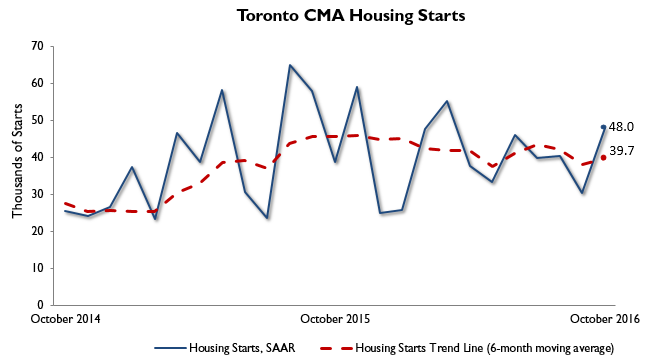TREB Raising Concerns Over Proposed Changes To Toronto LTT That Will Increase Costs For All Toronto Home Buyers
Author: Toronto Real Estate Admin / Category: Toronto RealtorTORONTO, November 25, 2016 — The Toronto Real Estate Board is raising concerns over proposed Toronto Land Transfer Tax changes. These proposed changes will increase costs for all Toronto home buyers, but impact first-time buyers the most.
This TLTT proposal comes at a time when housing affordability in Toronto is a serious concern for many, and contradicts recent Provincial government Land Transfer Tax changes intended to help make housing more affordable.
“In recent months, housing affordability in Toronto has received significant attention not only from the City’s residents and businesses, but also from senior levels of government, which have been actively considering policy options in this regard. The proposed changes to the City of Toronto’s Land Transfer Tax are a cash grab, and would make all Toronto home buyers pay more Toronto Land Transfer Tax, which means that the City is proposing to make home ownership in Toronto even more expensive,” said Larry Cerqua, President of the Toronto Real Estate Board.
A report that will be going to the City of Toronto’s Executive Committee next week is proposing that the City’s upcoming 2017 Budget process consider numerous changes to the way the Toronto Land Transfer Tax is implemented by harmonizing with the higher provincial Land Transfer Tax rates, including:
- Increasing the Land Transfer Tax rates by adding a new additional LTT rate on the portion of a property valued from $250,000 – $400,000.
- Harmonizing the Land Transfer Tax rebate for first-time home buyers with the Provincial Land Transfer Tax rebate threshold of $4,000, which would increase the City’s rebate for first-time buyers from $3,725, but not represent a big enough increase to offset the increase those buyers would experience from the new additional LTT rate on the portion of the property valued from $250,000 – $400,000. This means that first-time buyers would actually be losing ground because, with the new additional LTT rates, a $4,000 rebate equates to the LTT payable on a $368,000 home, whereas, currently without the additional LTT rates, the City’s maximum rebate of $3,725 equates to the LTT payable on a $400,000. The City proposal also considers the possibility of increasing the rebate to $4,475 instead of $4,000, which would represent the status-quo for homebuyers (i.e. first-time home buyers would be eligible for full refund if they purchase up to a $400,000 property).
- Eliminating the first-time buyer rebate entirely for home buyers purchasing a home above a particular price to be determined by City Council.
- Increasing the LTT rate on the value of a home over $2 million from 2% to 2.5%.
The purchaser of an average priced home already pays over $11,000 in Land Transfer Tax to the City. The proposed changes, if implemented, would mean that a purchaser of an average-priced Toronto home, currently, would pay $750 more Land Transfer Tax to City Hall, representing a seven percent increase. A first-time home buyer of an average-priced Toronto home would pay an extra $475 to City Hall, representing a 4% increase. This is in addition to the $75 Land Transfer Tax Administration Fee added through last year’s City budget process.
“These proposed changes would mean that the City’s budget relies even more heavily on a revenue source that has already been criticized by the City Manager for being unpredictable and unreliable. City Hall should be focused on making home ownership in this great City more affordable, not less; and should be relying less on this tax, not more,” said Von Palmer, Chief Communications and Government Affairs Officer at TREB. “TREB will be participating in the City’s upcoming budget consultations and will be raising concerns with these proposals if they move forward.”
Article source: http://www.trebhome.com/market_news/release_market_updates/news2016/nr_TLTT_changes_TREB_concerned.htm

